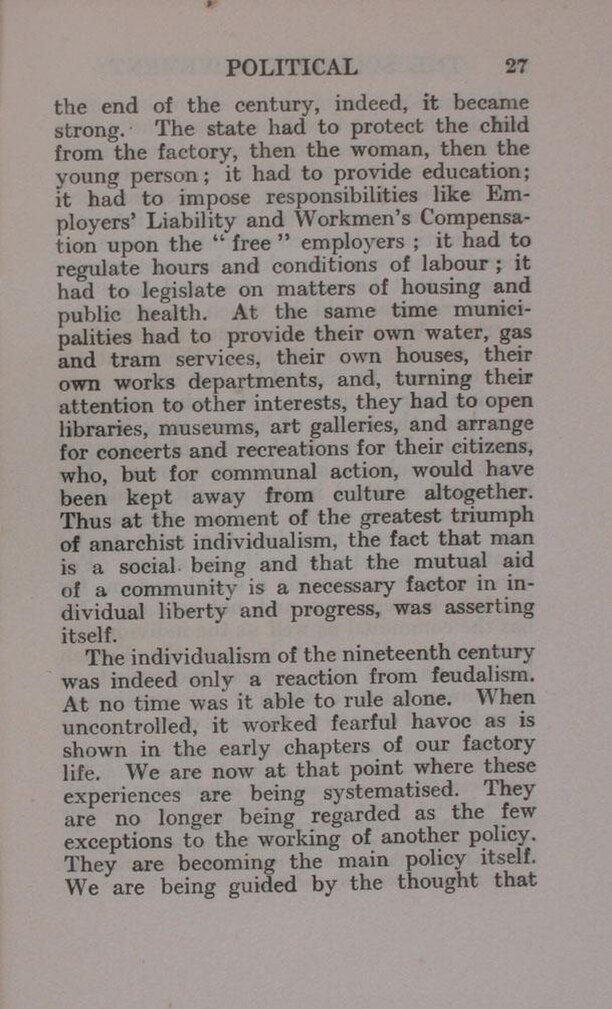the end of the century, indeed, it became strong.. The state had to protect the child from the factory, then the woman, then the young person; it had to provide education; it had to impose responsibilities like Employers' Liability and Workmen's Compensation upon the "free" employers; it had to regulate hours and conditions of labour; it had to legislate on matters of housing and public health. At the same time municipalities had to provide their own water, gas and tram services, their own houses, their own works departments, and, turning their attention to other interests, they had to open libraries, museums, art galleries, and arrange for concerts and recreations for their citizens, who, but for communal action, would have been kept away from culture altogether. Thus at the moment of the greatest triumph of anarchist individualism, the fact that man is a social. being and that the mutual aid of a community is a necessary factor in individual liberty and progress, was asserting itself.
The individualism of the nineteenth century was indeed only a reaction from feudalism. At no time was it able to rule alone. When uncontrolled, it worked fearful havoc as is shown in the early chapters of our factory life. We are now at that point where these experiences are being systematised. They are no longer being regarded as the few exceptions to the working of another policy. They are becoming the main policy itself. We are being guided by the thought that
